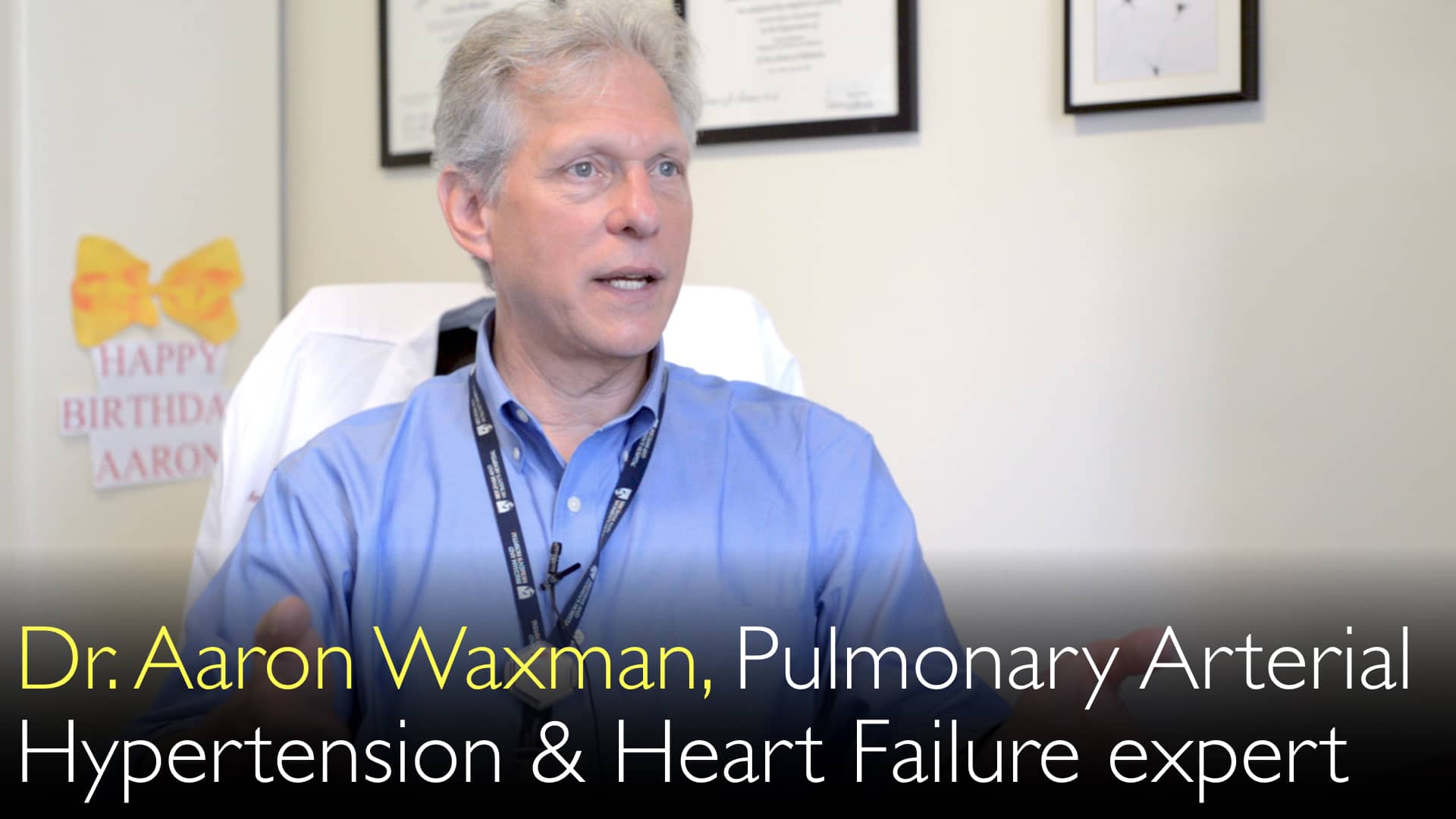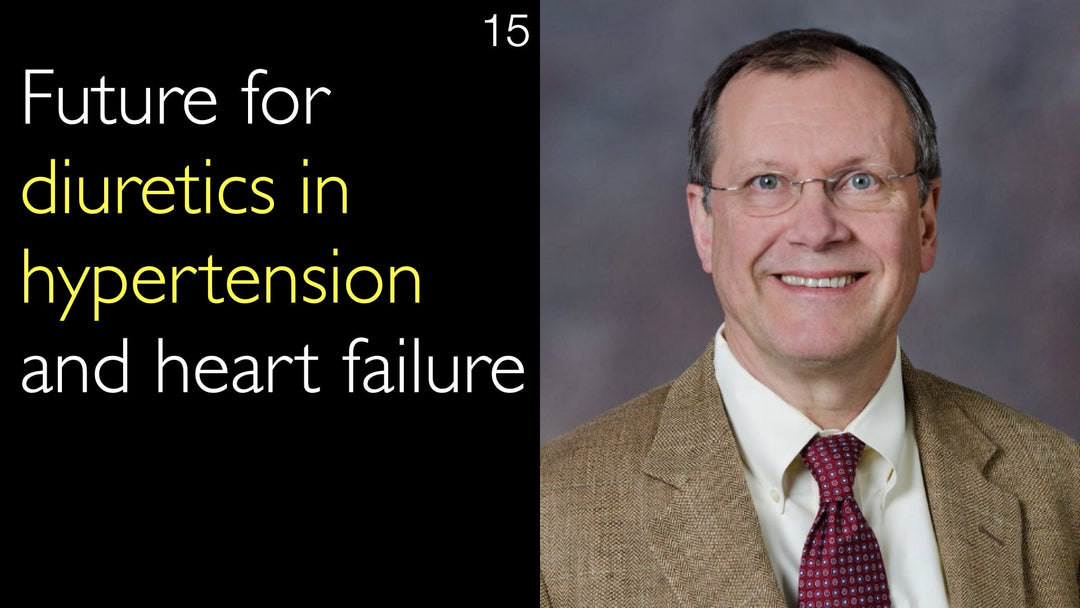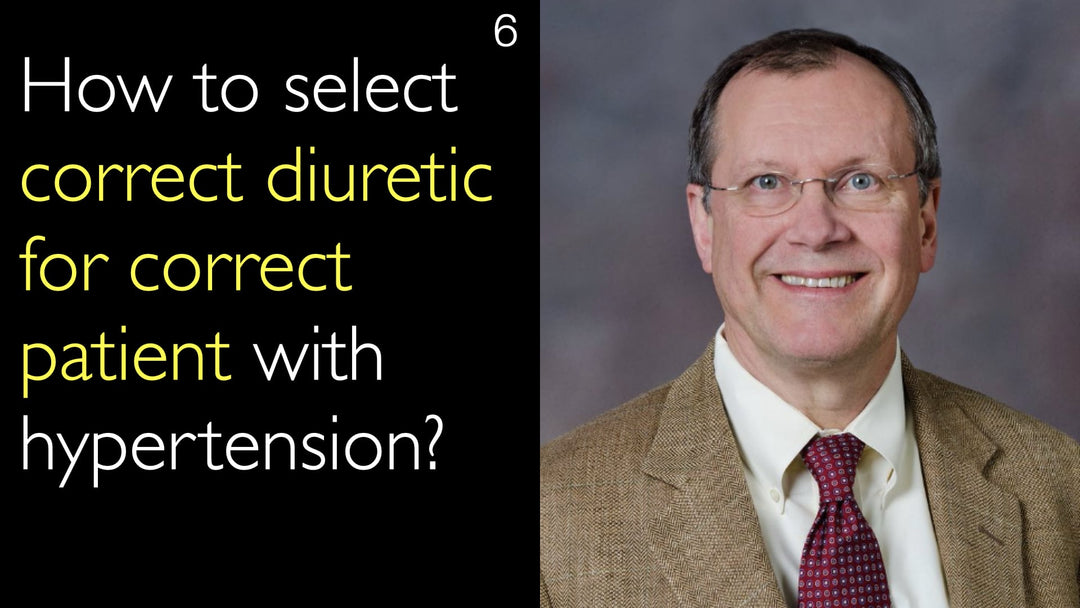Leading expert in pulmonary vascular disease, Dr. Aaron Waxman, MD, explains the declining use of anticoagulants in pulmonary arterial hypertension therapy. He details the significant bleeding risks of blood thinners like warfarin. Dr. Aaron Waxman, MD, discusses the historical rationale for anticoagulation based on in-situ thrombosis. Modern registry data now shows limited clinical benefit from lifelong anticoagulation. Most specialists have stopped routine anticoagulant use for PAH patients. Treatment is reserved for those with confirmed thromboembolic disease.
Reassessing Anticoagulant Therapy in Pulmonary Arterial Hypertension Treatment
Jump To Section
- Historical Use of Anticoagulants in PAH
- Bleeding Risks of Anticoagulation Therapy
- Limited Evidence for Anticoagulant Effectiveness
- Modern Treatment Approaches for PAH
- Changing Clinical Guidelines for PAH Therapy
- Full Transcript
Historical Use of Anticoagulants in PAH
Anticoagulants like warfarin and coumadin were historically used in pulmonary arterial hypertension therapy. Dr. Aaron Waxman, MD, explains the original rationale for this treatment approach. Pathological studies from the 1950s first identified in-situ thrombosis in pulmonary hypertension patients. This observation led clinicians to empirically prescribe blood thinners. At that time, no other effective pulmonary arterial hypertension treatment options existed.
Bleeding Risks of Anticoagulation Therapy
Anticoagulant therapy carries significant risks for pulmonary hypertension patients. Dr. Aaron Waxman, MD, emphasizes the major side effect is bleeding. This includes potentially life-threatening intracranial bleeding and gastrointestinal bleeding. The risk-benefit analysis becomes crucial for lifelong anticoagulation. Dr. Anton Titov, MD, discusses this balancing act with specialists. For many patients, these bleeding risks now appear to outweigh any potential benefits.
Limited Evidence for Anticoagulant Effectiveness
Recent studies question the effectiveness of anticoagulants for pulmonary arterial hypertension. Dr. Aaron Waxman, MD, references data from European and US patient registries. Research from his own institution's patient population supports these findings. The initial survival benefit observed was minimal. Contemporary analysis suggests limited clinical benefit from routine anticoagulation. This evidence has fundamentally changed treatment approaches.
Modern Treatment Approaches for PAH
Modern pulmonary arterial hypertension therapy has moved beyond anticoagulants. Dr. Aaron Waxman, MD, notes the availability of new targeted medications. These drugs specifically address the vascular pathology of PAH. The empirical use of older medications like warfarin is being phased out. Treatment now focuses on disease-modifying therapies rather than anticoagulation. This represents significant progress in pulmonary hypertension management.
Changing Clinical Guidelines for PAH Therapy
Clinical practice has shifted dramatically regarding anticoagulant use in PAH. Dr. Aaron Waxman, MD, states that most specialists no longer use routine anticoagulation. The exception remains patients with confirmed chronic thromboembolic disease. Those with known blood clots still require anticoagulant therapy. Dr. Anton Titov, MD, explores these evolving treatment standards with experts. This reflects ongoing research and improved understanding of vascular lung diseases.
Full Transcript
Warfarin and Coumadin were used in pulmonary hypertension therapy, but there is limited evidence for their effectiveness. Leading lung and heart disease expert explains.
Anticoagulants are used in clinical practice in patients with pulmonary arterial hypertension, but blood thinners, as they are also known, have a lot of significant side effects.
Dr. Aaron Waxman, MD: The major side effect is the risk of bleeding. It includes intracranial bleeding, gastrointestinal bleeding.
Dr. Anton Titov, MD: How to balance risks and benefits of anticoagulants when they are used for pulmonary arterial hypertension?
Dr. Aaron Waxman, MD: The whole role of anticoagulants in pulmonary arterial hypertension is now in question. Originally, anticoagulants were started because pathologically there was recognition of in-situ thrombosis in pulmonary hypertension.
Thrombosis was noticed when pulmonary arterial hypertension was first described in the 1950s. As such, people started asking questions.
We had no other treatment options for pulmonary arterial hypertension. Maybe we should put patients on Coumadin. Will it have an impact on disease?
Dr. Anton Titov, MD: That was a suggestion.
Dr. Aaron Waxman, MD: Blood thinning had a small impact on survival in pulmonary arterial hypertension. Since that time and over the past five years, we have recognized that probably there is not a lot of clinical benefit from anticoagulants in pulmonary arterial hypertension.
This doubt is based on studies that have been published out of the European registries, the US registries, and even out of our own patient population here.
We are not convinced anymore that the risks of anticoagulation outweigh the benefits in pulmonary arterial hypertension. Especially if it is a lifelong anticoagulation.
For many of us, we have stopped using routine anticoagulation. For those patients with pulmonary arterial hypertension who might have chronic thromboembolic disease, or who have had known blood clots, obviously they will be anticoagulated.
But now less and less we anticoagulate patients with pulmonary arterial hypertension. We have no indication that there is a lot of benefit from it.
It also speaks that there is a lot of research going on in the vascular lung diseases. New medications are becoming available to treat pulmonary arterial hypertension.
Older medications were empirically used. Now they are being phased out, in a sense. In many ways this is true.








